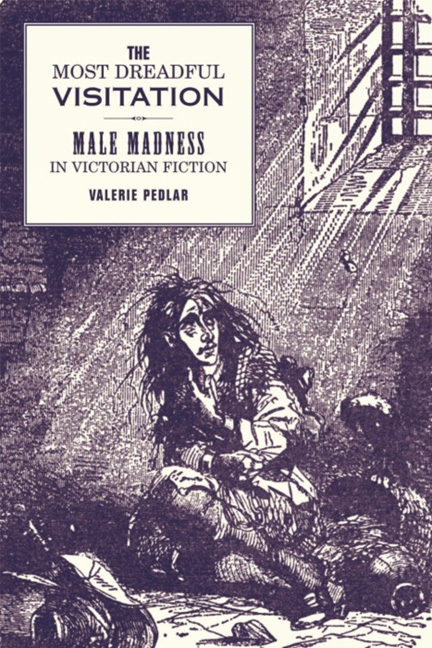Book contents
- Frontmatter
- Dedication
- Contents
- Acknowledgements
- Introduction
- 1 Insurrection and Imagination: Idiocy and Barnaby Rudge
- 2 Thwarted Lovers: Basil and Maud
- 3 Wrongful Confinement, Sensationalism and Hard Cash
- 4 Madness and Marriage
- 5 The Zoophagus Maniac: Madness and Degeneracy in Dracula
- Conclusion
- Bibliography
- Index
3 - Wrongful Confinement, Sensationalism and Hard Cash
- Frontmatter
- Dedication
- Contents
- Acknowledgements
- Introduction
- 1 Insurrection and Imagination: Idiocy and Barnaby Rudge
- 2 Thwarted Lovers: Basil and Maud
- 3 Wrongful Confinement, Sensationalism and Hard Cash
- 4 Madness and Marriage
- 5 The Zoophagus Maniac: Madness and Degeneracy in Dracula
- Conclusion
- Bibliography
- Index
Summary
Even before the large-scale building of county asylums promoted by the 1845 Lunatics Act, the fear of wrongful confinement was apparent. In 1728 Daniel Defoe castigated the ‘vile Practice now so much in vogue among the better Sort, as they are called, but the worst sort in fact, namely, the sending their Wives to Mad-Houses at every Whim or Dislike, that they may be more secure and undisturb'd in their Debaucheries’. John Conolly voiced a similar anxiety over the possible abuse of the system in 1830:
The facts which have been alluded to in the foregoing Inquiry, show, that the present regulations regarding the insane are at once inefficient for the protection of the insane themselves, and dangerous to the public; – that it results from them that some are improperly confined, and others improperly at large; – that whilst the eccentric are endangered, those actually mad are often allowed a dangerous liberty; – that the public are dissatisfied, and medical men harassed and perplexed.
One of the first novels to exploit the possibility of a man being wrongfully confined, is Henry Cockton's The Life and Adventures of Valentine Vox, the Ventriloquist, which was first published in monthly serial form and reissued as a book in 1840. Following in the tradition of the picaresque, it exploits the double shortcoming of the early Victorian asylum system, where someone could be wrongfully confined to suit greedy relatives, whereas a real lunatic could be left at large. Having witnessed a magician's display of ventriloquism, Valentine resolves to try it himself and discovers that he possesses an amazing ‘power of speaking with an abdominal intonation’. He first tries out his powers on a grand scale at a local political meeting, where he causes great confusion to others and great amusement to himself. Eventually he goes up to London and for the remainder of the book entertains himself by similar displays, with similar results, in a variety of different locations. Interwoven with the vocal mischief is another more continuous and more serious narrative. Valentine goes to stay during his London visit with an old friend of his Uncle John, Mr Grimwood Goodman.
- Type
- Chapter
- Information
- The Most Dreadful VisitationMale Madness in Victorian Fiction, pp. 80 - 110Publisher: Liverpool University PressPrint publication year: 2006



